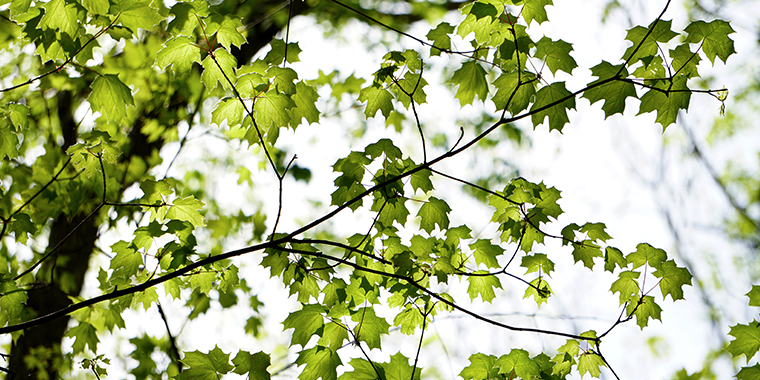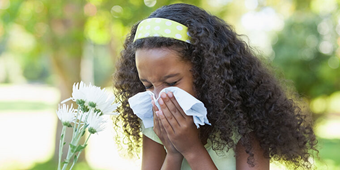Nature’s Prescription: ‘Forest Bathing’

Answer a few questions and we'll provide you with a list of primary care providers that best fit your needs.
Step outside. Breathe in the fragrance of lilac blossoms. Listen to birds sing in budding, leafing trees. Gaze at the green all around, the blue sky above. Feel the sun warm your shoulders.
Ahh… refreshing as a shower or bath.
Little wonder the Japanese coined a term for spending time in nature – shinrin-yoku – which translates to “forest bathing.”
With spring well underway and summer approaching, Premier Health Now decided to explore nature’s healthful, restoring nature with psychiatrist Christina Waite, MD, medical director of psychiatry at Miami Valley Hospital.
“We’ve always known it’s good to be outside, to be in nature. But now we know more about the why of this,” she says.
Research, she says, shows that time in nature can reduce stress, lower blood pressure, and improve overall physical, mental, and spiritual well-being. “We’re genetically hardwired for restoration in nature. For example, the brain fatigue that we all experience in our modern lives can be reduced by closeness to nature.”
In a study of 20,000 people in the United Kingdom, she says, researchers used functional magnetic resonance imaging to show the brain’s responses to the calming influence of nature versus the stressful effects of urban living.
Doctors in some countries, like Canada and Japan, are prescribing time in nature. Dr. Waite also prescribed nature for some of her patients when she had an outpatient psychiatry practice.
“I had a lot of depressed patients, anxious patients, and people who really felt hopeless, and I would prescribe walks for them every day, along with medication.” She also prescribed listening to music and viewing art to help patients “surround themselves with something they found beautiful.”
Constant exposure to urban environments, on the other hand, “increases health risks tremendously,” she says. “Anxiety, depression, even schizophrenia rates go up, something like 20 to 40 percent.”
Nature’s ability to promote physical, mental, and emotional health extends beyond what you can see, hear, smell, touch, or taste.
As you walk by, some trees and other plants emit phytoncides. These natural chemicals defend the plants against insects, bacteria, and fungi. At the same time, they can strengthen your immune system, Dr. Waite says. They increase activity of natural killer T cells, which protect against virus-infected cells and tumor formation.
“How symbiotic is that? Phytoncides help the plants, and they help us.”
What’s the ideal amount of time to be out in nature?
Dr. Waite says that one study recommends 120 minutes a week, which you can take in one dose or several doses through the week.
“You need to at some point slow down and smell the roses so you can take in nature with all of your senses,” she adds.
But while a leisurely stroll gives you time to soak it all in, there’s nothing wrong with a brisk walk or run in nature. “Exercising in nature obviously increases your exposure. It tends to be a habit and the exposure is prolonged and frequent, so it’s very good from that perspective.”
What if you live in an urban neighborhood and getting out in nature is not convenient?
“The positive effects of nature can pretty closely be replicated by virtual exposure to nature,” Dr. Waite says. That is, looking at videos or pictures of nature or listening to recordings of the sounds of nature. Plants in your home or office can help, too. Or a garden in your backyard. Even a walk around the block.
“And you can hope for our city planners to introduce more green corridors, like parks and bike paths.”
When should you get started?
Any time is good. But Dr. Waite says, “A study found that if you were exposed to nature in a significant way before you’re 10 years old, that your risk of mental illness is halved, compared to the general population. If you have a life-long relationship with nature, that is going to improve the whole quality of your life.”
She adds that time in nature “makes us more compassionate and social and gives us more of an appreciation for caring for our Earth. Everyone gains from this.”
Answer a few questions and we'll provide you with a list of primary care providers that best fit your needs.
Source: Christina Waite, MD, medical director of psychiatry at Miami Valley Hospital; CNN





